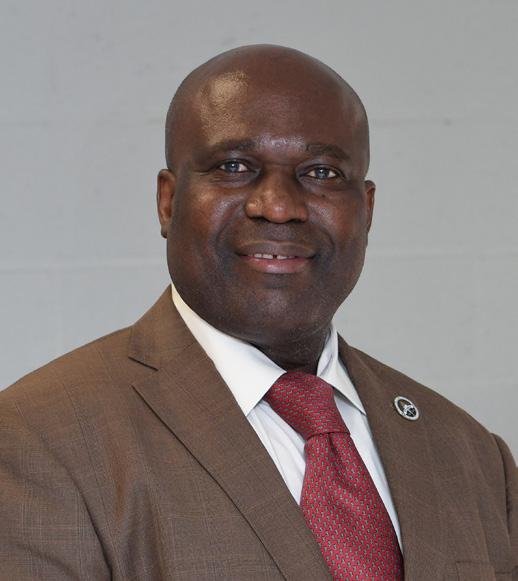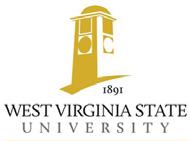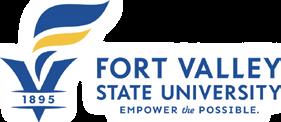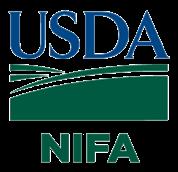THE CENTER’S FIRST GLOBAL FOOD SUMMIT ON SEPTEMBER 12-14, 2022 IN ATLANTA, GA
Under the sponsorship of the USDA National Institute of Food and Agriculture (NIFA), the CEGFSD held its very first GFSS on September 12-14, 2022 in Atlanta, GA with a carefully selected theme “Prioritizing and Refining the Agenda for Addressing Global Food Security within the 1890 Universities System.” The Center brought participants from across all the nineteen 1890 land-grant universities together with selected food and nutrition security scholars, and stakeholders from key partner agencies.

The primary goal of this summit was to engage participants in a dialogue on global food security with the purpose of developing a strong and cohesive implementation plan, which will prioritize and refine
the global food security agenda within the 1890 universities system. More specifically, the summit discussed the strategic issues in the context of global food security, education and workforce development, agricultural development, new and emerging animal and plant pests, and agricultural disaster recovery; as well as global public and private partnerships and engagement.
Speakers during the opening session of the summit included: President Heidi Anderson of UMES, Dr. Paul Jones, President, Fort Valley State University (FVSU) and Chair of 1890 Universities Council of Presidents; Dr. Venu Kalavacharla, Deputy Director for the Institute of Youth, Family and Communities, USDA NIFA; and

2 GLOBAL FOOD SECURITY AND DEFENSE QUARTERLY • FALL 2022
MESSAGE FROM THE DIRECTOR
WHERE WE WORK
Dr. Moses Kairo, Dean (UMES) and CEGFSD Director. The session was moderated by Dr. Mortimer Neufville, President & CEO of the 1890 Universities Foundation.



The summit featured several keynote speakers including Dr. Francisco Mello, Inter-American Institute for Cooperation on Agriculture (IICA) and CEGFSD Advisory Council (AC) member; Ms. Neneh Diallo, USAID Chief Diversity Officer; Mr. Daniel Whitley, USDA Foreign Agriculture Service (FAS) Administrator; and
Ms. Beattra Wilson, Assistant Director, Cooperative Forestry, US Forest Service and AC member.
Other highlights included the Center’s showcase of several projects funded by the Center, plenary sessions framing the challenges; engaging USAID Bureau for Resilience and Food Security, and USAID Minority Serving Institution (MSI) Engagement, USDA NIFA programs, and Land-O-Lakes.
Critical discussions at the summit also included the identification of the pillars of a dynamic action plan for the CEGFSD through breakout sessions led by Dr. Julie Shortridge, Virginia Tech Assistant Professor and AC member; Dr. Antonio McLaren, Vice President for Program Innovation and Implementation, 1890 Universities Foundation; and Dr. Moses Kairo.
Keynote Administrator Daniel Whitley, USDA - FAS
FEEDBACK FROM PARTICIPANTS
“I thought the discussions throughout the week were excellent. We look forward to our continued partnership in addressing critical priorities that are affecting vulnerable populations abroad.”
“Congratulations on a wonderful event that was not only interesting but inspiring and insightful.”
“Everything was well organized, and it was great seeing the level of interest and engagement of the participants.”
“Thank you for your leadership. It was indeed a great and very productive meeting. I look forward to continuing our work.”
“It was clearly evident that every aspect of the program was given very careful attention. I sincerely appreciate all of the hard work that UMES has put into the Center of Excellence initiative and your efforts to move forward our 19 Universities in the process. I look forward to our continued work in this area.”
The CEGFSD wishes to thank all who contributed to the success of the GFS. Please visit our website by scanning the QR code.
3 GLOBAL FOOD SECURITY AND DEFENSE QUARTERLY • FALL 2022
Keynote Ms. Neneh Diallo, Chief Diversity officer, USAID
GFS Summit opening session. September 12, 2022
THE CENTER ENGAGES U.S. AND GUYANA’S STAKEHOLDERS IN QUINOA VALUE CHAIN RESEARCH
of Agriculture (MOA)) would certainly be involved by facilitating the establishment of needed infrastructure, including the importation of seeds, the creation of a seed repository, and the permanent availability of seeds to the producers.
Prior to the U.S. delegation’s departure to Guyana, Ms. Joan Perry, Felix Quinoa Farming Industries Inc.’s founder, CEO and president, initiated contact with the Guyana stakeholders to investigate their availability. A trip itinerary was established and approved by the U.S. delegation and Guyana stakeholders. The U.S. delegation then traveled to Georgetown, Guyana, on the weekend of May 28-29, 2022. Consultative meetings were held May 30-June 5, 2022, as scheduled.
The purpose of the Guyana consultative meetings was to explore challenges and opportunities facing the quinoa value chain in Guyana. The specific objectives included:

1) learning what has been accomplished regarding the cultivation of quinoa in the country
A team of scientists and stakeholders traveled to Guyana on May 30 - June 5, 2022, to engage the industry, government, and private and public sectors in quinoa’s value chain. The U.S. delegation included professors from the University of Maryland Eastern Shore (UMES), Brigham Young University (BYU), Central State University (CSU), and representatives from the Foundation Felix Quinoa Farming Industry Inc. (FQFI). UMES was represented by Drs. Sadanand Dhekney and Stephan Tubene. While Dr. Rick Jellen represented BYU, CSU was represented by Drs. Michelle Corley and Ibrahim Katampe. Representatives from FQFI were Ms. Joan Perry, Ms. Clavelle Francis, Mr. Russell Felix, and Mr. Winston Felix.

Steps to ensure the establishment of a sustainable quinoa value chain in Guyana were debated by the U.S. delegation as a part of preliminary fact-finding for the consultative meetings. Primary observations concluded there was a lack of adequate quinoa seed stock and inadequate seed storage conditions in Guyana. Other constraints along the quinoa value chain included production challenges, processing, and marketing challenges and opportunities. Due to the shortage of seeds, one would argue a quinoa breeding program must be established by interested stakeholders including the University of Guyana (UOG), the National Agricultural Research and Extension Institute (NAREI), and the U.S. universities (BYU, VSU, CSU, and UMES). In addition, the Guyana government (i.e., Ministry
2) engaging various stakeholders along the quinoa value chain from input to the consumers’ table
3) exploring ways and means to move forward the quinoa value chain.
The U.S. delegation met with the following entities: Ministry of Agriculture (MOA), National Agricultural and Research Institute (NAREI), University of Guyana (UOG), U.S. Embassy, Caribbean Research and Development Institute (CARDI), Inter-American Institute for Cooperation on Agriculture (IICA), Food and Agriculture Organization (FAO), Guyana Rice Development Board (GRDB), and Berbice’s smallholder farmers.
While the first two objectives were accomplished, the third and most essential commands attention from all parties involved.
“We have a very diverse and strong team of scientists from UMES, VSU, CSU, and BYU. BYU brings quinoa germplasm, international quinoa introduction experience, and a network of international scientists
4 GLOBAL FOOD SECURITY AND DEFENSE QUARTERLY • FALL 2022
Guyana Delegation visiting NAREI, MOA in Georgetown, Guyana. June 2022
U.S. Delegation University of Guyana
connected to quinoa production and breeding, especially at low elevations,” said Dr. Jellen of BYU. “We also bring quinoa genomic tools and bioinformatic skills (especially Drs. Jeff Maughan and David Jarvis) for student training within the project. The FQFI team (Ms. Joan Perry, Ms. Claville Francis, Mr. Winston Felix, and Mr. Russell Felix) brings local knowledge, energy, field resources, in-country networks, and the ability to recruit farmers to work on the project.”
Suitable growing environments and match selections to those environments need to be found. Sandy loam soils will most likely prove suitable for sustainable quinoa production in Guyana. However, the
partnership with NAREI and UOG, as well as Mahendra Prasad at GRDB, will be critical. The sandy savanna soils in Region 9 are likely where the first large-scale trials should be put out.
A mechanized and small-scale, but scalable, desaponification solution for Guyanese quinoa producers must be identified. Then needed is the ability to distribute that apparatus throughout the country.
The above is a synopsis of Guyana consultative meetings, additional information may be obtained by writing to the Center of Excellence for Global Food Security and Defense – cegfsd@umes.edu
UNIVERSITY OF MARYLAND EASTERN SHORE CONDUCTS EMERGING PLANT PATHOLOGY TECHNOLOGIES TRAINING IN THE DEMOCRATIC REPUBLIC OF CONGO


Dr. Behnam Khatabi, associate professor at the University of Maryland Eastern Shore (UMES), trained scientists at the Plant Clinic International (PCi) and the National Institute for the Study and Agronomic Research (INERA) in the Democratic Republic of Congo (DRC) in the fall of 2022. Organized by the 1890 Universities Center of Excellence for Global Food Security and Defense (CEGFSD) with the USAID Current and Emerging Threat to Crops (CETC) Innovation Lab’s funds, this training opportunity focused on reviewing various banana plantain and cassava’s diseases, explaining the cost-effective diseases management tools for new and emerging plant pests and diseases in DRC, and isolating RNA and DNA from different plants to identify bacterial and fungal pathogens from different plant sources. “This is my first visit to Africa, and especially to DRC, to carry out workshops, train scientists, meet government officials, and visit farms.. Based on my educational and research training, I provided necessary skills in understanding plant pathological problems facing agriculture, food safety and security in DRC” said Dr. Khatabi.
All the workshops were followed by hands-on activities in the laboratories and at the farms. Dr. Khatabi had the opportunity to set up a plant health workshop at the PCi lab aimed at providing hands-on experience on cuttingedge technology in the field of molecular and plant pathology. He conducted brainstorming sessions involving students, faculty, and administrators from INERA and the Plant Health Clinic to develop plans for collaborative research in plant pathology. During this workshop, the participants worked side-by-side with him to run experiments and learn about the techniques in plant pathology and rapid detection methods of plant diseases.
Farm visits (banana plantain and cassava) were also organized at the INERA Mvuazi’s facilities to learn first-hand disease detection, monitoring, and control demonstrations in the field. “During these visits, I had the opportunity to share my skills in plant disease diagnosis and plant disease management programs as well as potential alternative management options to help prevent and manage plant diseases. It is incredibly eye opening for me to see the real problems and help farmers fight crop losses and help them to adopt new farming practices to boost their harvests and income. I am pleased that I did it to help and train the next generation of plant pathologists in Africa,” said Dr. Khatabi.
5 GLOBAL FOOD SECURITY AND DEFENSE QUARTERLY • FALL 2022
Dr. Khatabi, Ms. Germaine Vangu, and Mr. Dan Dibue at INERA Mvuazi, DRC. November 2022
Dr. Khatabi, and Dr. Lyna Mukwa, Training Session at PCi, DRC. November 2022
YOUTH PARTICIPATE IN FOOD SECURITY IN THE DEMOCRATIC REPUBLIC OF CONGO
Dr. Tubene engaged Congolese youth at a private farm in the suburban Maluku outside the capital city of DRC in November 2022. The farm visit was recommended by one of the CEGFSD’s partners in DRC. This farm receives technical assistance from the International Institute of Tropical Agriculture (IITA). The new graduates are a mix of students from the Kinshasa’ National Pedagogic University (UPN) and a local community college who landed an employment at the farm. UPN graduates, working on the In Vitro Culture for Large-Scale Propagation of Clean, Disease-Free Cassava technology, were encouraged by Dr. Tubene to pursue this noble career of agriculture production. In addition, young agronomists, being tested on craft skills acquired at the same farm, received an endorsement from Dr. Tubene for choosing agriculture as a career.
“For us, seeing an eminent professor from the U.S. taking time to visit and teach us gives us courage and motivation to pursue our dream,” said the young agricultural professionals. Tubene told the youth: “if the majority of the young Congolese who are currently unemployed were practicing agriculture and producing food supply (i.e., vegetables, maize or cassava), DRC would not be food insecure.”
UNIVERSIDAD DEL MAGDALENA STUDENTS IN COLOMBIA TRAINED IN AQUAPONICS AND FISH NUTRITION

On October 19th, 2022, Dr. Nicholas Romano, Assistant Professor from the University of Arkansas at Pine Bluff (UAPB), visited the Universidad del Magdalena (UDM), Santa Marta, Colombia, where he trained students and Colombian stakeholders in aquaponics, crab larviculture, fish nutrition, and biofloc technology (BFT).

Dr. Romano’s research and extension activities during this visit consisted of providing lectures on aquaponics, followed by a roundtable question and answer session with approximately 15 students. Based on on-going aquaponics research at UDM, Dr. Romano devised an experiment in which the students were able to compare the growth and subsequent transplantation of mangrove trees in both aquaponics and soil systems. Given UDM students’ interest in crab larviculture, fish nutrition and BFT, Dr. Romano organized workshops on these topics. More specifically, Dr. Romano taught students several techniques including Artemia enrichment (a common research practice, but not known by the students), feeding protocol, and caring for the broodstock, which is basically the use of sand for eggs to stay on the crab’s abdomen (practices not known by the students).
Regarding the training on BFT, Dr. Romano provided UDM students with an Excel file and trained them on how to calculate the level of organic carbon needed for an efficient feeding rate and crude protein content of the feeds as the main variables. Additionally, the BFT protocol assumptions and specific guidelines applicable to the students’ research plans were well explained during the workshops.
6 GLOBAL FOOD SECURITY AND DEFENSE QUARTERLY • FALL 2022
Dr. Tubene, youth training in DRC. November 2022
Dr. Romano visits to Universidad of Magdalena, Santa Marta, Colombia. October 2022
For fish nutrition, Dr. Romano gave a lecture on the topic and trained students on a feed formulation software that he developed years ago. UDM students were confident using these tools to formulate isonitrogenous and isolipidic diets for their research experiments. Prior to these training sessions, students were completely unaware of these processes and are glad now that they can use them for future fish nutrition research. Finally, Dr. Romano spent the final two days of his capacity building endeavor traveling to the fish farms and interacting with farmers.
NORTHERN GHANA’S LIVESTOCK FARMERS TRAINED TO RAISE FARM PRODUCTIVITY

Savannah Agricultural Research Institute’ (SARI) and 1890 Universities Center of Excellence for Global Food Security and Defense’s (CEGFSD) scientists conducted a series of workshop training at three (3) communities (Baadabog, Bazua, and Yaligu) in the Binduri District of the Upper East Region of Ghana. Overall, 409 farmers (134 males and 265 females) benefited from these workshops. The general topics discussed focused on good animal husbandry practices, crop residue management, and small ruminant production.
Training outcomes for these workshops were twofold: 1) increased awareness and skills on crop residue harvesting, storage and utilization; and 2) improved knowledge on livestock feeding, nutrition and other good husbandry practices that affect animal birth and death, weight, and health.

In general, the use soil amendment such as compost can alleviate soil acidity, improve soil water-holding capacity, and prevent the leaching of plant nutrients, which all contribute to increased crop yields and raised farm productivity.
In fact, during the monitoring visits to the intervention sites, the research team observed that the vegetative growth of maize on Ms. Assibi Nbawini’s farm was unique, which caught researchers’ attention.
In her testimony, Farmer Madam Assibi, an innovative farmer at Yarigu who participated in the training on crop residue management and compost preparation said she conveyed all her household and animal waste products (food, wastewater, ash, manure, etc.) into a compost pit after the training. This was applied to the backyard farm in May 2022 and ploughing was done in June 2022. She noted that only half the amount of mineral fertilizer was applied this year compared to the previous years but expecting much greater harvest this year compared to the harvest in the last few years. She concluded that little information gathered from the meetings and the on-going radio broadcast are very useful if one is patient enough to practice them at home.
An “Animal Production Training Workshop” facilitated by the District Development Officer for Livestock Officer (Mr. Adondo Issifu Rahman) of the Department of Agriculture, Binduri District in the Upper East Region of Ghana was also conducted by SARI and CEGFSD scientists. The training participants were livestock producers from the three communities (Baadabog, Bazua and Yaligu) in the Binduri District of the Upper East Region of Ghana.
It is worth noting that at the end of the training, the Chief of the community appreciated the Project Manager for organizing the training for in the community. He noted that most women are engaged in some level of pig production, but high mortality rates remain the critical constraint in animal production. “We have fresh ideas now on best practices on animal nutrition, treatment for common diseases and management, and good housing practices, which are critical to enhancing livestock production. I encourage you the beneficiaries to put to practice the knowledge acquired from this training,” he said.
7
GLOBAL FOOD SECURITY AND DEFENSE QUARTERLY • FALL 2022
Small farmers’ training in Bazua, Northern Ghana.
Dr. Romano interacting with Universidad of Magdalena students, Santa Marta, Colombia. October 2022
Center of Excellence for Global Food Security and Defense
Kiah Hall, Room 1104
Princess Anne, MD 21853
CEGFSD OFFICERS
DIRECTOR
Moses T. Kairo, Ph.D., DIC Professor and Dean


ASSOCIATE DIRECTOR
Stephan Tubene, Ph.D. Professor
ASSISTANT DIRECTOR
Maricelle Saullo, MBA

GLOBAL FOOD SECURITY AND DEFENSE QUARTERLY • FALL 2022
The University of Maryland Eastern Shore prohibits discrimination on the basis of race, religion, national origin, disability, marital status, pregnancy, sexual orientation, gender identity or expression. Inquiries regarding the application of Federal laws and non-discrimination policies to University programs and activities may be referred to the Office of Equity & Compliance/Title IX Coordinator by telephone (410) 651-7848 or e-mail (titleix@umes.edu).
This work is supported by the USDA National Institute of Food and Agriculture, Centers of Excellence at 1890 Institutions. CEIED Award # 2020-3842731514 and, CEGFSD Award: 2021-38427-34838.
The CEGFSD Newsletter is published by the Office of
Communications.
Agricultural
agcomm@umes.edu | 410-651-6084






































